This post may contain affiliate links. Please see our disclosure policy.
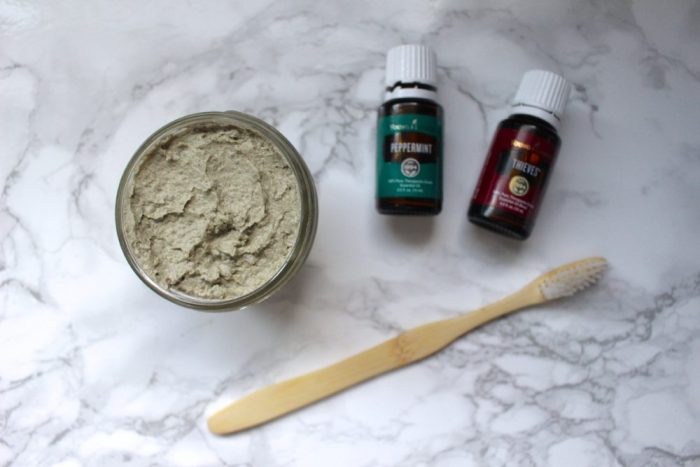 Homemade clay toothpaste is something I started attempting after I became a fan of Earthpaste, an all-natural toothpaste without chemicals and additives. I hate that conventional toothpaste contain hormone disruptors like triclosan and fluoride, unnecessary artificial sweeteners, and foaming agents like DEA which is linked with various cancers. No thank you. While Earthpaste worked for me for a while, I didn’t like that it had a sweet flavor and I thought it would be fun to make my own.
Homemade clay toothpaste is something I started attempting after I became a fan of Earthpaste, an all-natural toothpaste without chemicals and additives. I hate that conventional toothpaste contain hormone disruptors like triclosan and fluoride, unnecessary artificial sweeteners, and foaming agents like DEA which is linked with various cancers. No thank you. While Earthpaste worked for me for a while, I didn’t like that it had a sweet flavor and I thought it would be fun to make my own.
As a side note, my dental health has improved dramatically through the past several years as I changed my diet and started using natural toothpastes. Remember: your dental health reflects your overall health in general, so if you find that you are prone to cavities and inflammation in your gums, it’s worth looking into your diet and finding out what imbalances are happening in your body.
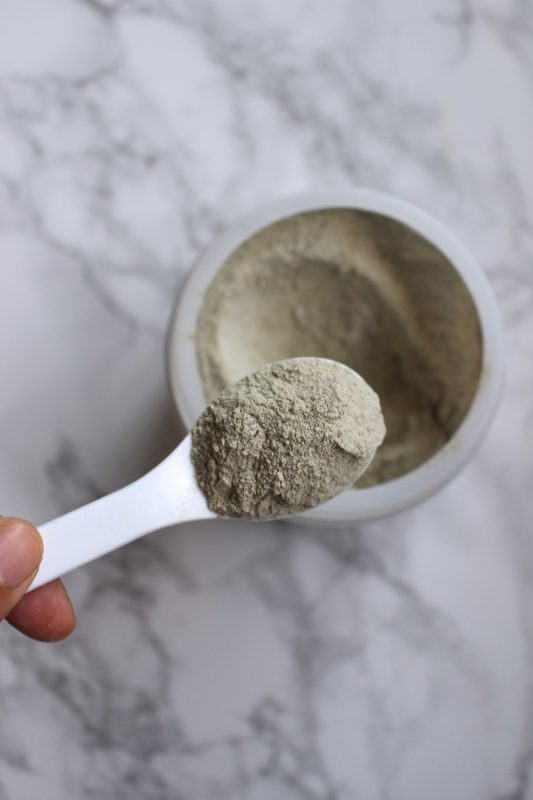
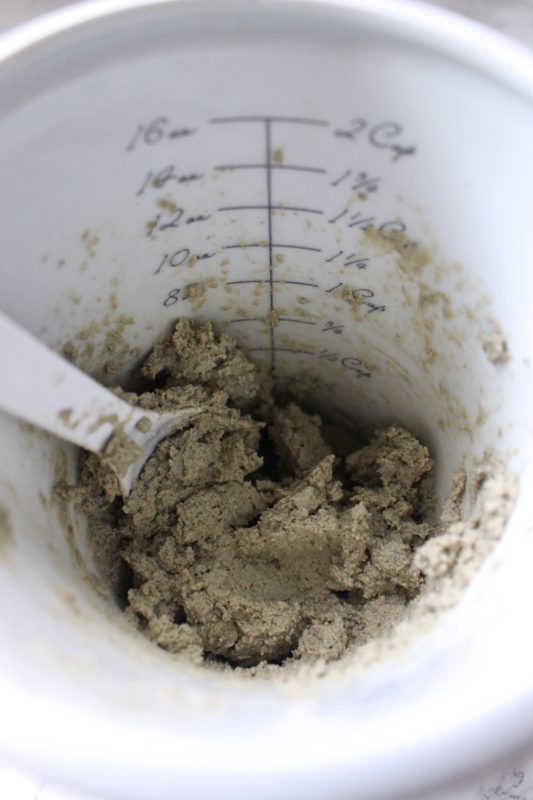

Why Use Clay?
Clay, specifically bentonite clay, is known to contain an abundance of beneficial trace minerals and vitamins and has traditionally been used to boost immunity and to treat mineral deficiencies. It also has an amazing quality of binding to heavy metals, toxins, bacteria, and harmful substances so they can be removed from body. When used in toothpaste, it helps remineralize our teeth with calcium and magnesium, and its binding component also cleans out the mouth of any bacteria that may be forming.
Coupled with stain-reducing baking soda, the antibacterial component of coconut oil, and essentials oils that optimize their effectiveness, this recipe makes an awesome toothpaste that leaves your mouth feeling clean and refreshed.
Remember, When Using Bentonite Clay…
Bentonite clay should NOT come in contact with any metals. When this happens, it loses its effectiveness because it absorbs the metals that it comes in contact with. When using bentonite clay, use glass, ceramic, or plastic with your utensils and containers.
Also, I recommend you purchase bamboo toothbrushes to reduce your exposure to plastic (something like this). Making small changes to our daily routine can ensure that we reduce the amount of toxins that enter our body and the environment, while saving money at the same time if you go the DIY route!
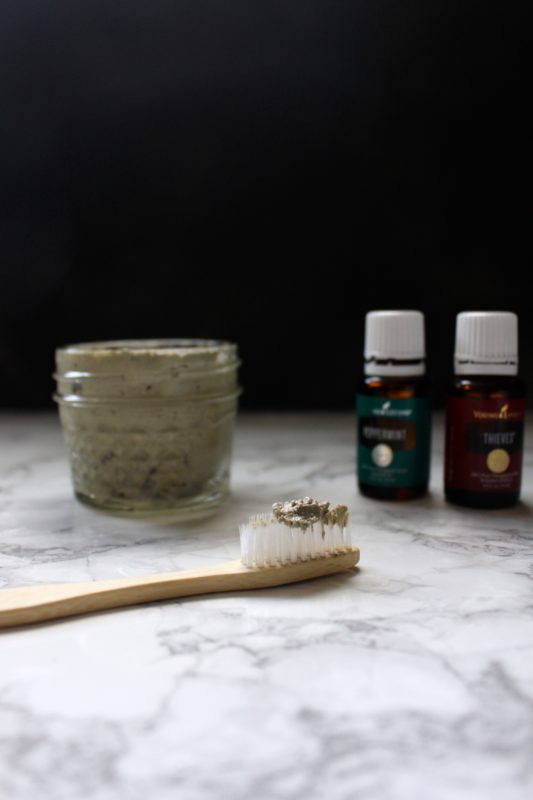
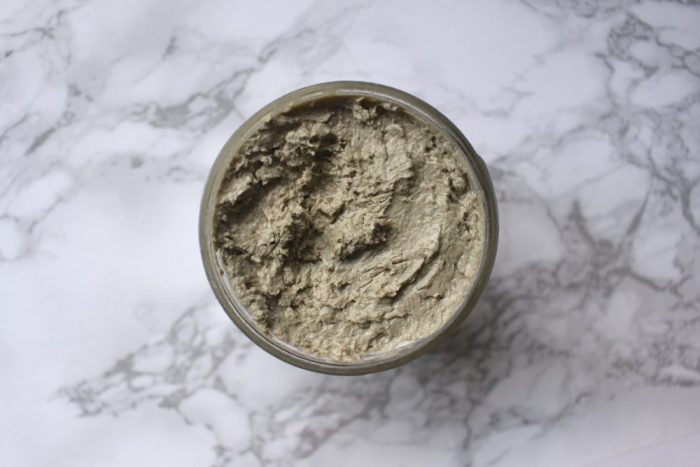
Homemade Clay Toothpaste Recipe
Ingredients
- 3 tbsp bentonite clay
- 1/4 cup filtered water + more, if needed
- 2 tbsp coconut oil, melted
- 2 tsp baking soda
- 15-20 drops of essential oils (I like the combo of peppermint and thieves)
Instructions
- In a glass, plastic, ceramic container (do NOT use metal), mix together bentonite clay, melted coconut oil, and water with a non-metal spoon until well-mixed.
- Add baking soda and essential oils and mix again.
- If the toothpaste is too thick, add a little bit of water at a time until it reaches the right consistency.
- Put in a glass or plastic container, where you can dip your toothbrush to use the toothpaste. Alternatively, if you have other people using the toothpaste as well, you can store in a bpa-free plastic squeeze tube.
Regarding other affiliate links and affiliate relationships: In order for me to support my blogging activities, I may receive monetary compensation or other types of remuneration for my endorsement, recommendation, testimonial and/or link to any products or services from this blog. Thank you for your support and understanding.



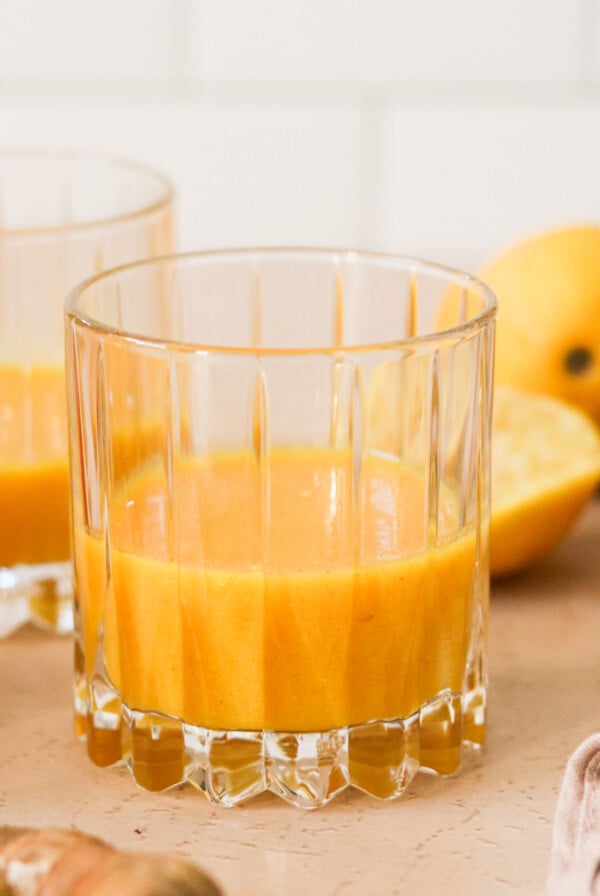
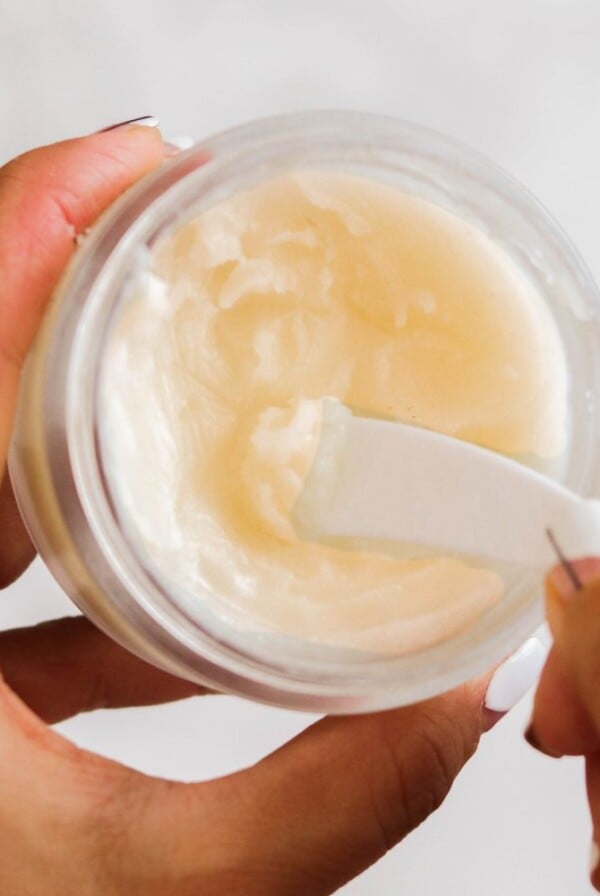
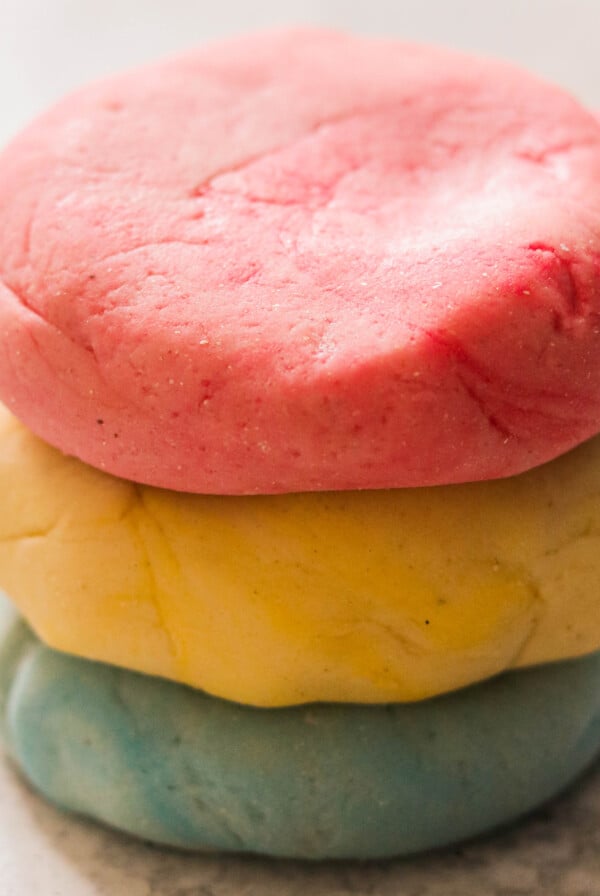
Hi Jean, I’m looking forward to trying out this recipe! I have a big bag of rhassoul clay, and I’m wondering if I can substitute that for the bentonite? Thanks!
Just saw this now! I haven’t tried but I think that’ll be fine.
Is it possible to substitute the water for a 190 proof coconut alcohol to extend shelf life?
I’ve never used coconut alcohol so I’m not sure.
Is it possible to substitute the water for a 90% coconut alcohol to extend shelf life?
This jar looks like it would have a metal lid. Is that ok, as long as it doesn’t touch the paste? Or do you use something else to cover it?
I use these lids (https://amzn.to/2SCLeQB). The metal lids rust so I don’t love them.
Thanks so much for sharing the recipe!
What is the expiration date for the toothpaste before it gets moldy or bacteria growth?
If I omit water, how long would it last?
Thanks,
Lily
I’m not sure. I’ve used it for 3 months before it ran out and it was good until then. Probably would last longer if you kept it in the fridge.
Can you used any other oils besides coconut oil? Like jojoba or glycerin..
Coconut oil is what gives the toothpaste the thick texture and it’s also antifungal. I wouldn’t use jojoba since it’s not edible and you use using it in your mouth. Food-grade glycerin may work but it won’t have those same antimicrobial properties. I’ve never tried with it though so I can’t guarantee results.
Glycerine is used in flouride-free toothpastes to coat the teeth as a protective layer. But that is actually a bad idea because then it blocks actual minerals from coating your teeth, which is what the bentonite clay is used for.
So no, do not use glycerine. Jojoba is a great idea that, maybe not as affordable.
Thanks for sharing your recipe. Does the recipe work if you don’t have filtered water?
It’ll still work. There are many times fluoride, arsenic, lead, and other heavy metals in tap water so it’s better to use filtered. But you can still make it with tap if you aren’t concerned about that.
Thank you so much for this post! I just made this toothpaste! I had all the ingredients on hand. I used 10 drops tea tree oil and 10 drops spearmint essential oil. Taste amazing and my teeth are super clean! Thank you!!!
So glad you like it. Thanks so much!! 🙂
Hi, I used calcium bentonite clay from a health food store and it was all working well for about a month. Now though straight after I brush I get a burning sensation on the sides of my tongue that lasts for about a day 🙁
Hi there, I’m not sure why this would happen. I’ve use this toothpaste continuously for a year and never had this reaction. It could be burning mouth syndrome which can be caused by various factors and not necessarily the toothpaste. If you found relief from switching to another toothpaste, then this toothpaste probably isn’t right for you. Sorry, and I hope it goes away!
Maybe the essential oils weren’t mixed properly and you had arrived at the part where these were concentrated. Could be helpful to remix it all. I know it’s a long while since you commented this but I figured it can still be helpful info for the readers 🙂
I can not get he coconut oil incorporated into the clay/water mixture. It separates!
Was the coconut oil melted when you mixed it in? I never had issues with it separating. What kind of coconut oil are you using?